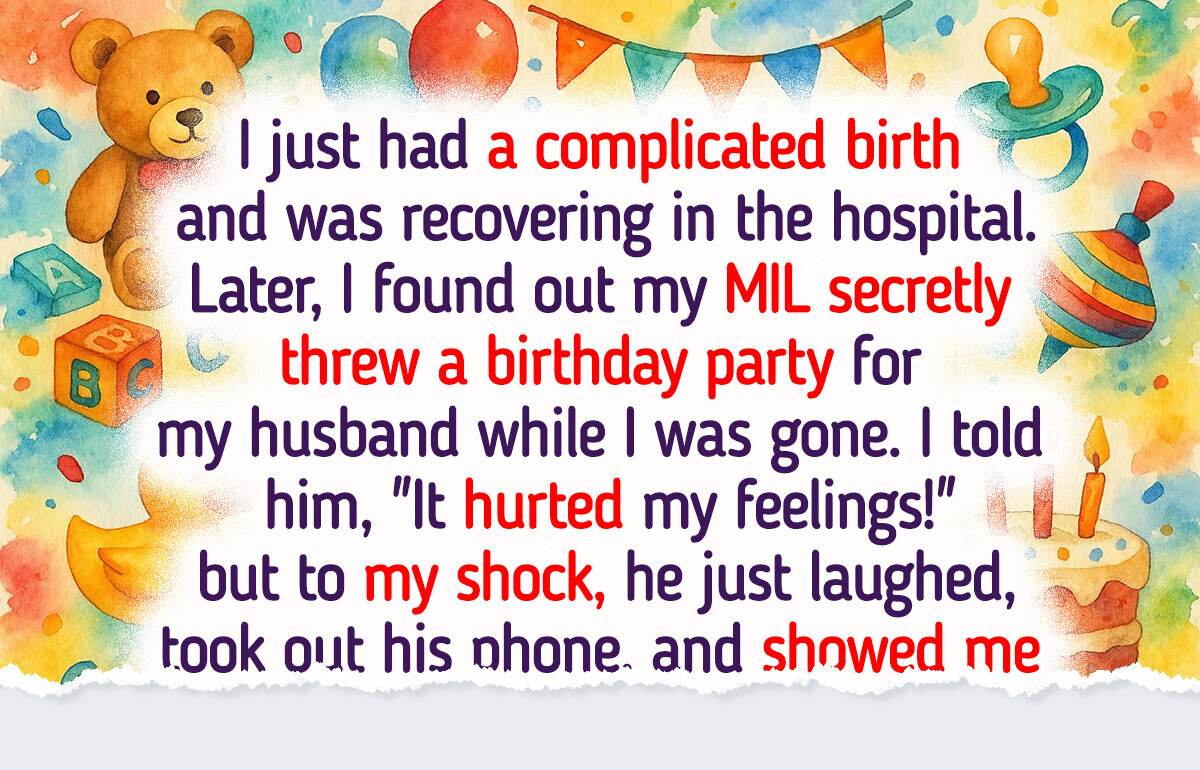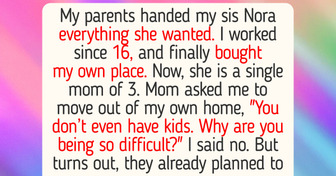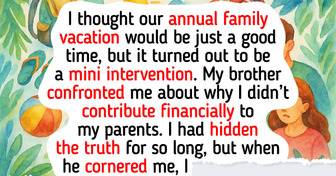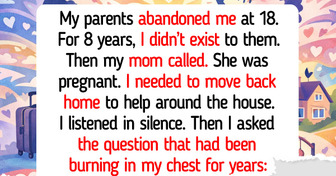My Only Sister Excluded Me of Her Wedding Due to My Disability


Right after giving birth and while still being in the hospital, one of our readers discovered that her mother-in-law had thrown a surprise birthday party for her husband that she didn’t know about. What followed was a whirlwind of hurt feelings, an apology that didn’t feel sincere, and a husband who doesn’t understand why she can’t just “let it go.” Here’s her story of navigating new motherhood, family drama, and the struggle to forgive without losing herself.

“I just had a complicated birth and was recovering in the hospital. Later, I found out my MIL secretly threw a birthday party for my husband while I was gone.
I told him, ‘It hurt my feelings!’ but to my shock, he just laughed, took out his phone, and showed me the invite she’d already sent out.
The worst part? She had the audacity to invite my husband’s ex-fiancée! When I said I felt hurt, he brushed it off, saying his mom didn’t realize I’d need a longer recovery at the hospital.
My husband tried to make it up to me with a special dinner, just the two of us. His mom later apologized, but I’m still questioning her motives, and I’m trying to find a way to forgive her without losing myself just to keep the peace.
Now my husband’s getting upset because I haven’t fully let it go. What should I do?”
We hear you, and your feelings are completely valid — especially during such a vulnerable time. If you’re feeling overwhelmed or unsure how to move forward, here are a few things you can do to protect your peace, heal emotionally, and rebuild trust.

You might feel pressure from your husband or others to “move on,” but forgiveness isn’t something you owe anyone — especially if you feel your pain hasn’t been fully acknowledged. You can forgive on your own terms, without forgetting or excusing the behavior.
Genuine forgiveness involves working through the hurt, understanding what caused it, and often redefining your relationship with the person — not pretending the event didn’t matter.

After childbirth, your physical and emotional sensitivity is heightened due to hormonal changes and sleep deprivation. It’s entirely valid to feel hurt when your needs are overlooked — especially by close family.
Emotional invalidation — like being told to “let it go” — can make pain worse and hinder healing. Naming and validating your feelings (e.g., “I feel excluded and disrespected”) is a first step toward emotional regulation and self-compassion.

A romantic dinner is a nice gesture — but true healing in a relationship comes from feeling emotionally seen and safe. Talk openly with your partner about your hurt, and help him understand that what you need is empathy, not just a “reset.”
Emotional repair is key in long-term relationships. Trust is restored through repeated validation, transparency, and mutual effort — especially after one partner feels dismissed.

Your postpartum period is not the time to “be polite” at the cost of your peace. Setting boundaries — like expressing your wish to be included in future family decisions — is essential for your emotional safety and long-term mental well-being.
Boundaries prevent resentment, clarify expectations, and help others treat you with respect. Assertive communication like, “Next time, I’d like us to make big decisions together,” is not rude — it’s necessary.

This experience might be one part of a bigger emotional load you’re carrying. If you’re feeling persistently overwhelmed, tearful, angry, or numb — it might be time to speak with a mental health professional. Postpartum depression and anxiety can show up in subtle ways.
Getting help early can prevent emotional struggles from escalating. Even one or two therapy sessions can offer relief, perspective, and tools to navigate difficult family dynamics.
Turning 30 should be a time for reflection and joy — whether it’s a big party or a quiet night with loved ones. For Laura, it was the latter: a calm evening without family drama. But one unexpected guest shattered the peace, turning her milestone into a night no one would forget.











